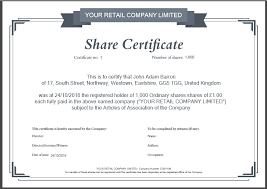
Assets, of course! That’s what just about everyone says. But, why is this?
Real estate agents are not generally trained in the field of share acquisitions. Often, they don’t have experience, they don’t have educational courses and they don’t have any precedents. So, you can hardly expect them to put together a share purchase deal. Traditionally, the asset purchase is the least risky and safest course.
Lawyers and accountants are both trained in the field, but the deals flow through real estate agents and they are all going to be “asset” transactions. By and large, the significant volume of transactions will be asset based.
Let’s have a look at some of the pluses and minuses.
Asset Purchase
This is a transaction where the purchaser acquires all the assets of the business enterprise, but not the company itself. Each individual asset must be listed and conveyed. This can be a rather arduous process. These transactions used to take place pursuant to the Bulk Sales Act, which has now been revoked.
Share Purchase
In this transaction, the purchaser acquires the company itself. All the assets, as well as the liabilities come with the deal. The conveyance is rather simple. The purchaser is simply issued a new share certificate from the company.
Advantages of Asset Purchase
Time and time again, you will hear the basic advice: don’t assume the owner’s liabilities. And, that is the end of the advice. That’s it, just one simple statement. and that’s supposed to convince you.
Advantages of Share Purchase
You get the company with its track record. Nothing has changed. You don’t have to apply for new credit with suppliers, it’s the same company. The letterhead is the same, the banking arrangements are the same, nothing at all has changed. You just have a new person signing the cheques. No deposits are required for the utilities. Ninety day terms with creditors stay as 90 day terms.
Disadvantages of Asset Purchase
The price! You pay a 15% to 35% premium for an asset purchase. You also start afresh. This means the business is now under “new management”, and you will need to provide all the utilities with deposits, and make new deals with all your suppliers and customers.
Disadvantages of Share Purchase
You assume the liabilities. But, you know this upfront. That doesn’t mean that everything is simply a surprise. Manage this risk. Have the vendor post some security. Withhold some funds to account for the unexpected. Ensure that you continue with the same insurer. Structure a vendor take back mortgage. This demonstrates good faith and provides protection for the purchaser.
Why the Price Discount?
With a share purchase, a small business owner may be able to shelter the entire proceeds from tax. The owner and everyone else in his family who holds shares may sell $800,000 worth of shares in a small business corporation on a tax exempt basis. So, this is where you come in as the purchaser and participate by sharing in the windfall. This is the principal reason for the 15% to 35% discount.
You should seek the advice of an experienced commercial realtor who will steer you in the right direction, and will have the necessary precedents available to complete a share purchase.
You also need legal and accounting advice at this point. Just remember, you might be saving $350,000 on a million dollar deal, so it’s certainly worth a second thought. Be sure to have your lawyer or your solicitor practicing in the field of commercial real estate review the offer for you before it is submitted. It’s very difficult to add conditions and terms afterwards.
Brian Madigan LL.B., Broker
www.OntarioRealEstateSource.com
